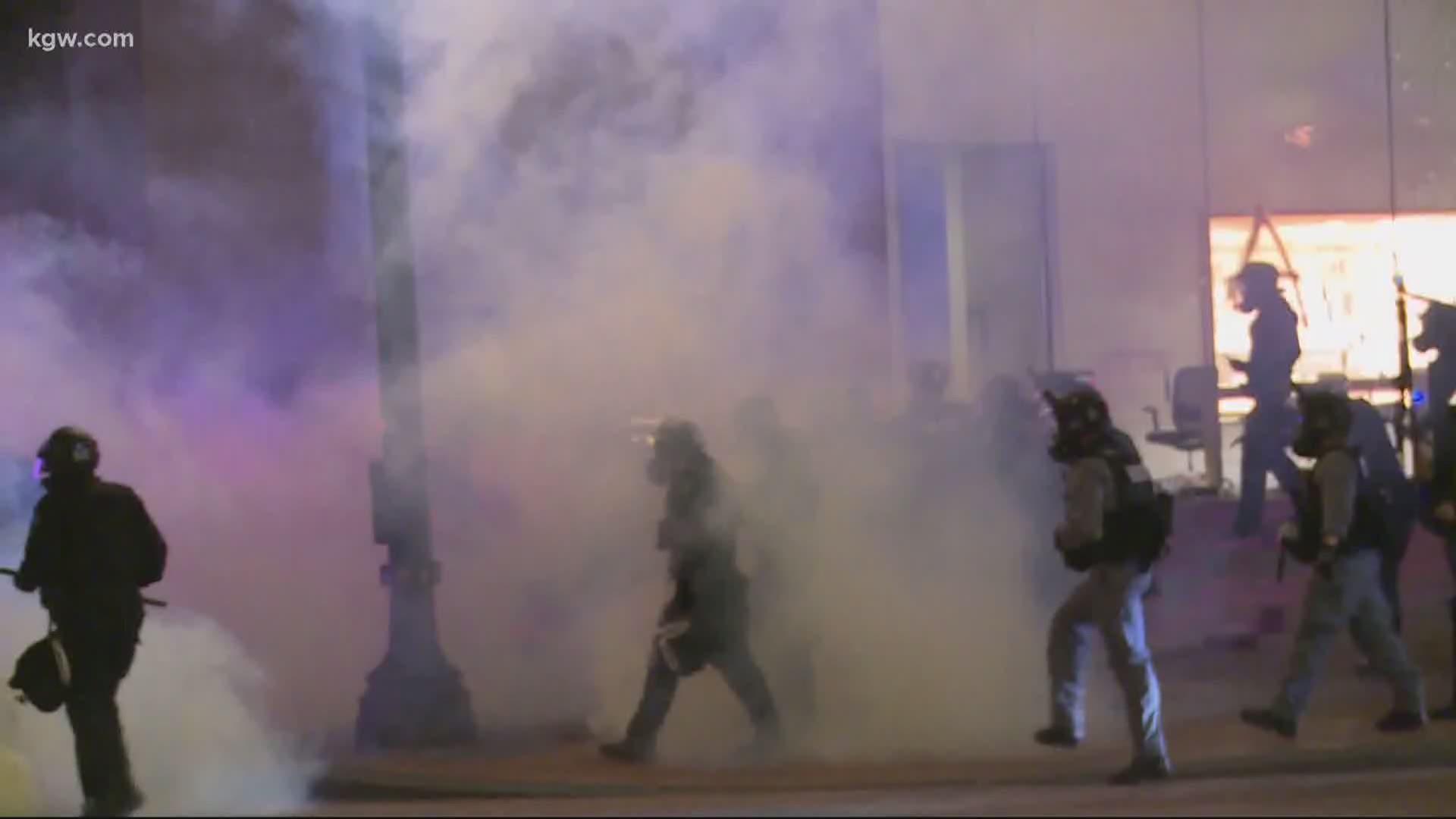PORTLAND, Ore. — After two months of protests, dozens of arrests and an increased presence of federal officers in downtown Portland, many KGW viewers have contacted us, asking why there isn't a curfew in place.
When the protests first started, however, Portland Mayor Ted Wheeler implemented a largely unsuccessful curfew for several days.
George Floyd was killed by a Minneapolis Police officer on May 25, 2020 and in the coming days, thousands of Americans marched through city streets, demanding racial justice.
Portland was no different. The largest protest to that point occurred on Friday, May 29 with a peaceful gathering organized by the NAACP and then a vigil in the evening at North Portland's Peninsula Park.
At around 9 p.m., the group of protesters started to march down Martin Luther King Jr. Boulevard while chanting, "black lives matter," "no justice, no peace," and "I can't breathe."
The event turned quickly, however, as some demonstrators broke away from the group and started vandalizing businesses along Martin Luther King Jr. Boulevard. The rioters and looters shattered store windows and tagged buildings with graffiti that police say stretched for 20 blocks.
The march reached downtown, where demonstrators broke into and started a fire inside the Multnomah County Justice Center, home to hundreds of inmates. No inmates were injured.
Other protesters set fires throughout downtown, torching dumpsters, trash cans, cars and pallets. Police deemed the demonstration a riot and used tear gas, flash-bang grenades and other uses of force to disperse protesters.
From that Friday night through Saturday morning, Portland Police arrested 13 people.
"I cannot condone last night's violence," Mayor Wheeler said during a press conference Saturday morning. "I can't stand by and watch our city be destroyed, buildings set aflame. I won't. But nor will I stand silent as men like George Floyd are murdered by the very institutions that are supposed to protect and serve them."
For the next three nights, Wheeler enacted a curfew, meaning non-essential Portlanders shouldn't be out on city streets between 8 p.m. and 6 a.m.
The curfew, however, fell largely flat. The movement was gaining traction, and thousands of protesters showed up downtown each night.
In a press conference on Tuesday, July 2, Wheeler admitted the curfew was not effective and decided not to extend it. Commissioner Jo Ann Hardesty agreed, telling OPB the curfew was, "having the opposite impact we're wanting to have."
KGW reached out to Mayor Wheeler's office for comment regarding the curfew and to see if they were interested in re-enacting it in the coming days. We haven't received a response.
Seattle's mayor implemented a similar curfew around the same time, and also backed away from it after a few days, saying she met with community leaders who expressed concern over the curfew.
Alex Vitale, a professor of sociology and the coordinator of the Policing and Social Justice Project at Brooklyn College, told Vox.com in May, "Curfews are an extremely blunt tool that should only be used sparingly and as a last result. They give police tremendous power to intervene in the lives of all citizens. They pose a huge burden on people who work irregular hours, especially people of color in service professions who may need to travel through areas of social disturbance in order to get to and from work at night."

